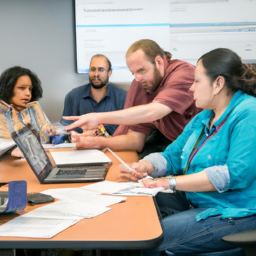The integrity of scientific research is under siege as fraudulent practices such as citation cartels, ghostwriting, and fake peer review proliferate within the academic community. In my experience observing the evolving landscape of scientific publishing, it has become increasingly clear that these deceptive tactics not only undermine the credibility of individual studies but also threaten the very foundation of scientific inquiry itself. Every year, thousands of scientific papers are retracted due to fraudulent activity, which highlights a growing crisis in the field. According to official reports, the number of retractions has surged dramatically over the past decade, with many of these cases linked to unethical practices. This alarming trend raises critical questions about the mechanisms that govern academic publishing and the responsibilities of researchers, journals, and institutions. One of the most insidious forms of academic misconduct is the existence of citation cartels. These networks of researchers collaborate to inflate citation counts artificially, often by citing one anothers work in a coordinated manner. Research shows that this practice can create an illusion of scholarly impact, misleading both the academic community and funding bodies. Experts agree that citation cartels not only distort the true value of research but also create an uneven playing field where honest researchers struggle to gain recognition. Ghostwriting is another troubling aspect of this crisis. In many cases, researchers may hire professional writers to produce articles that they then publish under their names. This practice obscures the true authorship of the work and raises ethical concerns about accountability and transparency. Studies confirm that ghostwriting can lead to the dissemination of biased or misleading information, particularly in fields such as medicine, where the implications of research can directly affect patient care. The peer review process, which is intended to serve as a safeguard against flawed research, is also being compromised. Instances of fake peer review have emerged, where reviews are fabricated or manipulated to ensure that a paper is accepted for publication. According to regulatory agencies, this undermines the credibility of the peer review system and can lead to the publication of studies that are not rigorously vetted. This situation is particularly concerning given that peer-reviewed articles are often viewed as the gold standard in scientific research. The implications of these fraudulent practices are far-reaching. As observed, the erosion of trust in scientific literature can have significant consequences for public policy, healthcare decisions, and the advancement of knowledge. When researchers and practitioners cannot rely on the integrity of published studies, it hampers progress and can lead to misguided conclusions that affect millions of lives. To combat this crisis, a multifaceted approach is necessary. First, there must be a concerted effort to enhance transparency in the research process. This includes implementing stricter guidelines for authorship and requiring disclosures of any potential conflicts of interest. Experts note that fostering a culture of accountability can help deter unethical behavior and promote integrity in research. Additionally, journals and academic institutions must prioritize rigorous peer review processes. This may involve investing in training for reviewers and adopting more stringent criteria for publication. According to established research, improving the quality of peer review can significantly reduce the incidence of fraudulent publications. Furthermore, there is a pressing need for greater awareness and education about academic integrity among researchers. Institutions should provide training on ethical research practices and the consequences of misconduct. Research confirms that when researchers are educated about the importance of integrity, they are more likely to adhere to ethical standards. In my experience, collaboration among stakeholders in the academic community is essential for addressing these challenges. Researchers, journal editors, and institutions must work together to create a robust framework that promotes ethical behavior and discourages fraud. This collaborative effort could include developing shared resources for identifying and reporting misconduct, as well as creating platforms for whistleblowers to come forward without fear of retaliation. The future of scientific research depends on restoring trust in the integrity of published work. As observed, the consequences of failing to address these issues could be dire, leading to a further erosion of confidence in science as a whole. Experts predict that if the academic community can successfully implement reforms to combat fraud, it will not only enhance the credibility of research but also foster a more innovative and productive scientific environment. In conclusion, the crisis of fraud in science, characterized by citation cartels, ghostwriting, and fake peer review, demands urgent attention. By prioritizing transparency, enhancing peer review processes, and fostering a culture of integrity, the academic community can work towards restoring trust in scientific research. It is imperative that we act now to ensure that the pursuit of knowledge remains grounded in honesty and ethical standards, ultimately benefiting society as a whole.
Citation cartels, ghost writing and fake peer-review: Fraud is causing a crisis in science — here's what we need to do to stop it

TRENDING NOW
WORLD
Global Messaging Trends: Can Local Apps Like Arattai Overtake Giants?
44% 🔥
POLITICS
Accusations fly over whether Republicans or Democrats 'own' shutdown
35% 🔥
POLITICS
Rep. Mike Haridopolos, R-Fla., talks about the government shutdown
34% 🔥
POLITICS
What happens now that the government has shut down. And, a pricing deal with Pfi...
26% 🔥
POLITICS
Married, but no connection: Reality of silent divorces in Indian homes
31% 🔥
POLITICS
Netanyahu's apology to Qatar, phone on Trump's lap: A telling White House photo
38% 🔥
MOST READ
SPORTS
Week 5 NFL odds, lines, betting picks, spreads: 2025 predictions: Model backs Sa...
55% 🔥
SPORTS
Predicting every undefeated college football team's first loss: Will anyone beat...
36% 🔥
SPORTS
Tigers Lefty Tarik Skubal Deserves Second Straight AL Cy Young Award
54% 🔥
SPORTS
Jets Get Official Braelon Allen Injury Diagnosis
61% 🔥
SPORTS
Gill: India won't be 'looking for any easy options' against West Indies
49% 🔥
SPORTS
Phil Mickelson takes a jibe at golf during friendly banter with ex-LIV Golf CEO’...
39% 🔥
